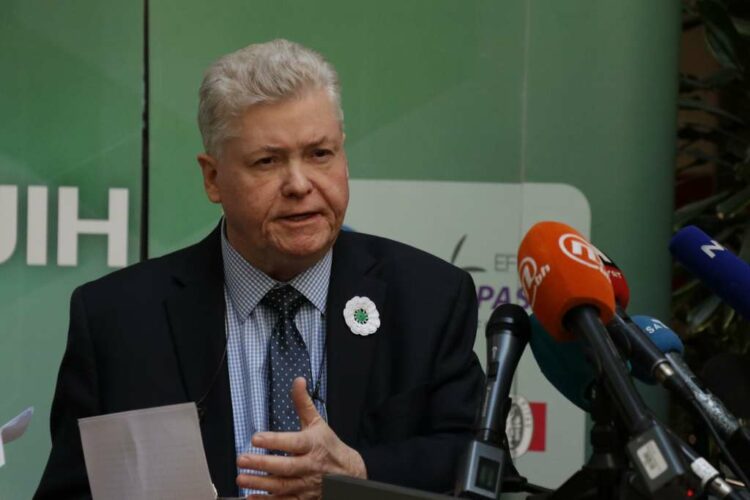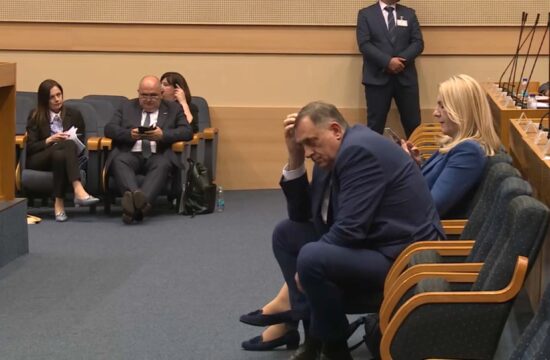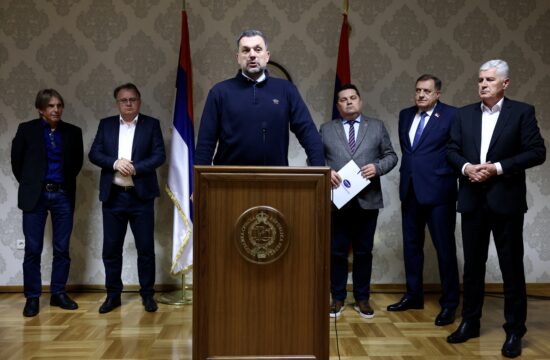
A group of Bosnians and Americans originally from Bosnia and Herzegovina called the 'Working Group for Bosnia and Herzegovina' gathering BiH and foreign intellectuals and activists sent an open letter to Antony Blinken, Secretary of State of the Department of Foreign Affairs of the United States of America, expressing grave concern regarding the political situation in the country.
Below you can read the letter in its entirety:
“Dear Secretary of State Blinken,
We are writing to express our concern about High Representative Schmidt’s October 2 decision concerning the election law in Bosnia and Herzegovina as well as its unsettling political consequences.
By High Representative Schmidt’s own account, his ill-timed decision–rendered as it was on election day, in violation of the Venice Commission’s ‘Code of Good Conduct in Electoral Matters’–was designed to satisfy the Ljubic case, whose plaintiff had raised the issue of ‘legitimate’ Bosnian Croat representation. Indeed, Prime Minister Plenkovic and Mr Covic welcomed High Representative Christian Schmidt's reform initiative, saying that it would help ‘ensure legitimate representation of Croats in the Federation's Parliament.’
The implication was that the High Representative’s decision was designed to appease Croatian nationalists in Bosnia and Croatia, further entrenching ethnic divisions while completely ignoring the rulings of the European Court of Human Rights, which have consistently called for democratic reforms.
The decision to appease the nationalists seems to have been based on the principle of ‘functionality,’ since, without such appeasement, both the HDZ and SNSD party leaders had been threatening either to boycott the election or to secede, respectively.
But what will be the ultimate cost of the ‘functional’ government that has been achieved? In the aftermath of the elections, as the government is being formed, the governing document agreed upon by eight party leaders, along with Mr Covic (HDZ) and Mr Dodik (SNSD), clearly violates EU democratic standards with its emphasis on ‘constituent peoples’. Further, the document makes no mention of Bosnia’s NATO membership, an obvious appeasement of Mr Dodik’s SNSD party.
The ECtHR ruling in the Zornic case expected that ‘democratic arrangements will be made without further delay’ for a ‘political democracy'… ‘without discrimination based on ethnic affiliation and without granting special rights for constituent people to the exclusion of minorities or citizens of Bosnia and Herzegovina’ (Art. 43). Hence, both the High Representative’s decision and the newly signed governing document violated this ruling.
The High Representative’s decision and the governing document’s emphasis on ‘constituent peoples’ also directly contravene the EU Council conclusion that granted Bosnia EU candidacy status. The EU Council conclusion asserted that ‘no legislative or political step should be taken which would make the implementation of the Sejdic-Finci ruling and related ECtHR rulings more challenging or would further deepen divisions.’
But the absence of any mention of joining NATO in the governing document is a matter of even greater concern. The Russian Federation’s illegal and inhumane invasion of Ukraine and its documented meddling in the Balkans was a primary motivating factor for the decision to grant Bosnia EU candidacy status. NATO Secretary General Jens Stoltenberg warned the world recently of Russia’s malign intentions in the Balkans.
Membership in NATO is crucial for the preservation of Bosnia’s sovereignty and territorial integrity in the years ahead. The omission of NATO from the governing document is an appeasement of Milorad Dodik who has made statements in support of the Russian Federation before and during the invasion of Ukraine. Mr Dodik has stated that he respects Putin and has claimed that the invasion of Ukraine was ‘justified’.
Let us recall that in the last year, Republika Srpska’s President Milorad Dodik threatened to form his own military and to secede. Bosnian Croat nationalists, for their part, have proposed the formation of a third entity in Bosnia if their demand for a ‘legitimate’ representative was not granted. This separatist rhetoric echoes the war-aims in the 1990s of ‘Greater Serbia’ and ‘Greater Croatia,’ respectively. The appeasement of the nationalists with the election law and the omission of NATO from the governing document weakens the traditional pro-Bosnian parties, and severely undermines Bosnia at the worst possible time when it needs to stand unified against Russian meddling in the region.
In the tradition of constructive dissent, which was encouraged even within the U.S. State Department by the ‘dissent channel’ established in 1971 by Secretary of State William Rogers, we ask again, in conclusion, what the cost of this foreign policy objective has been, particularly in the case of the election law, following negotiations in Bosnia and Croatia in the last two years? Those who were hindering state-building in Bosnia, with nationalist rhetoric and threats of secession, and who found their staunchest allies in the Russian Federation, have been rewarded. Those who have been sanctioned by the U.S. are now making decisions that are detrimental to Bosnia’s future.
This ‘reward’ has squandered any progress Bosnia had made in the past two decades on the path toward the EU, NATO, constitutional reform, and democracy. We, therefore, appeal to you to respond to this existential crisis by strongly condemning secessionist rhetoric and standing now with a unified, sovereign Bosnia and Herzegovina by supporting its future in the EU and NATO as a democratic nation.”





Kakvo je tvoje mišljenje o ovome?
Budi prvi koji će ostaviti komentar!